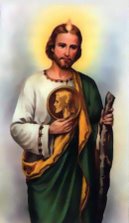It exposes for the first time the scope of the problem in Ireland, as well as how the government and the church colluded in perpetuating an abusive system. The revelations have also had the effect of stripping the Catholic Church, which once set the agenda in Ireland, of much of its moral authority and political power.
The report singles out Ireland’s Department of Education, meant to regulate the schools, for running “toothless” inspections that overlooked glaring problems and deferred to church authority.
The report is based in part on old church records of unreported abuse cases and in part on the anonymous testimony of 1,060 former students from a variety of 216 mostly church-run institutions, including reformatories and so-called industrial schools, set up to tend to neglected, orphaned or abandoned children.
Most of the former students are now 50 to 80 years old.
Some 30,000 children were sent to such places over six decades, the report says, often against their families’ wishes and because of pressure from powerful local priests. They were sent because their families could not afford to care for them, because their mothers had committed adultery or given birth out of wedlock, or because one or both of their parents was ill, drunken or abusive. They were also sent because of petty crime, like stealing food, or because they had missed school.
Many of the former students said that they had not learned their own identities until decades later. They also said that their parents had unsuccessfully tried to reclaim them from the state.
The problem I see here, that the Times reporter does not, is this: that government and Church collaborated. I've said before that the Establishment Clause of the Constitution is far less to protect us from theocracy than it is to protect the independence of the Church from the State. Christ's power is made perfect in weakness. It's appropriate for the Church to protect her doctrines and conscience from the State as much as she can. But that sort of political power is a far, far thing from seeking the state's favors, and I can readily believe that these workhouses, orphanages and reformatories got money from the government in return for keeping children.
This sort of abuse, particularly the sexual element of it, makes Theology of the Body ever more important. I find myself in agreement with those who claim it is the neccessary and moral response to both Victorian repression and the libertinism of the so-called "sexual revolution."









